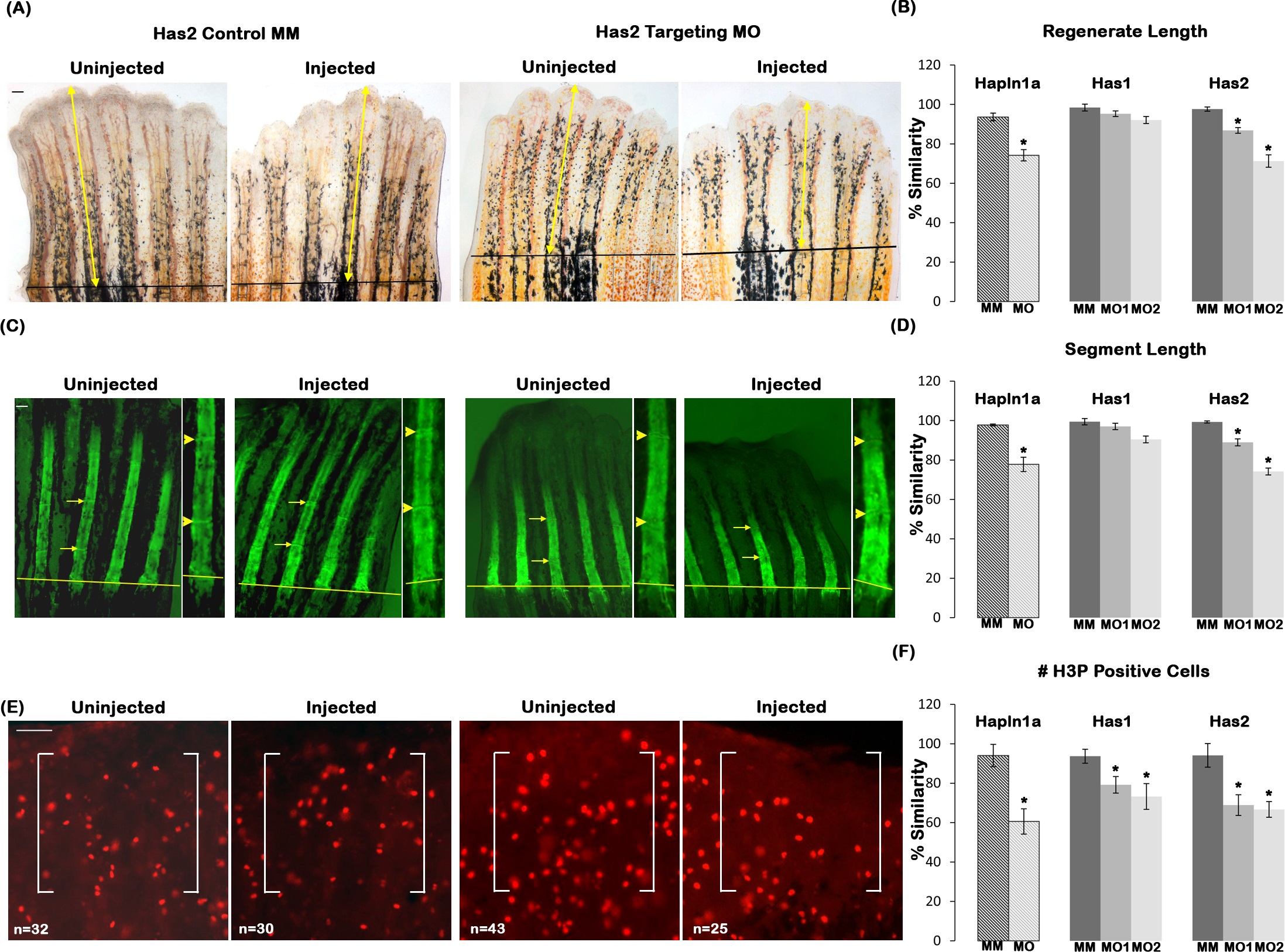Fig. 3
Reduced HA contributes to Hapln1a knockdown phenotypes.
(A) Representative images showing regenerate length for Has2 MM and Has2 MO treated fins. Total regenerate length was evaluated by measuring the distance between the amputation plane (black line) to the distal end of the fin using the 3rd fin ray (marked by yellow arrows). (B) Bar graph shows that regenerate length is significantly reduced upon has2 knockdown but not in has1 knockdown using two independent MOs for each gene (MO1 and MO2). The hashed bars indicate the extent of hapln1a knockdown effect compared to has1 and has2 knockdowns. (C) Representative calcein stained fins showing segment length for Has2 MM and Has2 MO treated fins. Segment length was evaluated by measuring the distance between first two joints in the regenerate (marked by yellow arrows). An enlarged inset for the measured segment is provided and the joints are indicated by yellow arrow heads. (D) Bar graph shows that segment length is significantly reduced upon has2 knockdown but not in has1 knockdown using two independent MOs for each gene (MO1 and MO2). The hashed bars indicate the extent of hapln1a knockdown effect compared to has1 and has2 knockdowns. (E) Representative H3P stained fins showing H3P positive cells for Has2 MM and Has2 MO treated fins. H3P positive cells were counted within a defined area (marked by white brackets). (F) Bar graph shows that cell proliferation is significantly reduced upon has1 and has2 knockdown using two independent MOs for each gene (MO1 and MO2). The hashed bars indicate the extent of hapln1a knockdown effect, compared to has1 and has2 knockdowns. Students t-test was performed (p<0.05) to determine significance, and the error bars indicate standard error of the mean. Scale bar is 50 µm in all panels.

